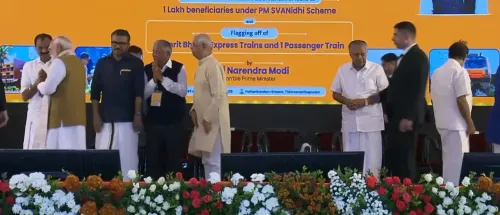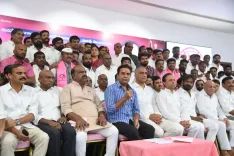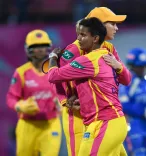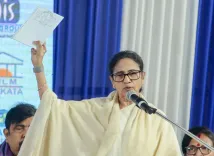Will Allies from Haryana to Bihar Continue to Contest Each Other?
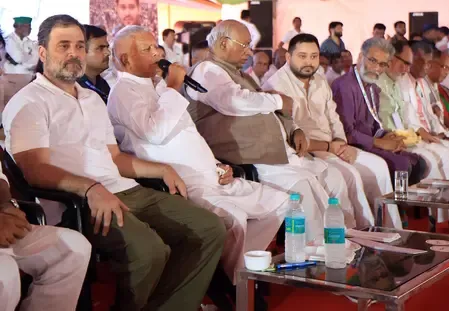
Synopsis
Key Takeaways
- Uncertainty prevails over seat-sharing agreements in Bihar.
- Past alliances have shaped current political dynamics.
- Friendly contests can influence electoral outcomes.
- Historical precedents provide insight into current strategies.
- Major parties are vying for dominance in the upcoming elections.
New Delhi, Oct 16 (NationPress) As the deadline for submitting nominations for the initial phase of the Bihar Assembly elections approaches, a sense of uncertainty looms over seat-sharing arrangements, raising the possibility of “friendly competitions” in certain constituencies.
Among the partners in the Mahagathbandhan (Grand Alliance), key players such as the Rashtriya Lok Dal (RJD), Congress, and the Left are vying for a substantial portion, leaving smaller allies concerned about their own electoral chances. The Bihar Legislative Assembly consists of 243 seats.
Simultaneously, the ruling National Democratic Alliance (NDA) is grappling with its own challenges, as allies like the Lok Janshakti Party (led by Chirag Paswan) and Upendra Kushwaha’s Rashtriya Lok Morcha (RLM) compete for specific seats.
In the previous Assembly elections of 2020, the Mahagathbandhan alliance yielded positive results, with all partners, except for Congress, performing admirably. The RJD emerged as the largest party, winning 75 out of 144 seats contested, while the Left secured 16 out of 29 constituencies.
Congress, however, only managed to win 19 out of 70 seats it contested. This time, the central leadership of Congress is trying to rejuvenate hope within the state unit, having convened its working committee meeting in Patna last month.
Overall, the opposition coalition is once again aspiring for power in the state, and the journey to this goal might involve a few “friendly contests”. Whether such occurrences will influence the final outcome remains to be seen.
Such electoral battles are not unusual in India, where “friendly” competitions have historically been either coincidental or strategic, as noted by observers.
The earliest recorded instance of such a “friendly contest” likely dates back to Haryana. In the lead-up to the 1987 Haryana Legislative Assembly elections, Devi Lal united various opposition parties against the then-ruling Congress government led by Bansi Lal. The Left parties joined this anti-incumbent alliance, with the Communist Party of India and the Communist Party of India (Marxist) each being allotted one seat.
Within this coalition, where Devi Lal’s Lok Dal and the BJP were primary partners, a dispute arose between the BJP and CPI(M) regarding the Fatehabad seat in Hissar. Devi Lal insisted that no single seat jeopardize the alliance he formed, prompting both partners to engage in a “friendly contest”.
In that contest, BJP's Balbir Singh Choudhary defeated his political “friend,” Prithvi Singh Gorkhpuria of CPI(M), by over 28,000 votes. Ultimately, the coalition won 85 out of 90 seats.
A follow-up analysis described the Congress’s defeat in Haryana as a “thunderclap” that resulted in a “new political superman, an NT Rama Rao of the north.” Similar to Rama Rao in Andhra Pradesh, who led a regional party to power with a focus on regional identity, Devi Lal became symbolic of Haryana’s struggle against perceived “gross injustice from the Centre.”
While the players and dynamics have evolved over time, some alliances have managed to navigate the aftermath of “friendly contest” results, while others have led to defeats, sometimes culminating in splits.
Similar to the Mahagathbandhan, parties united under the banner of the “Indian National Developmental Inclusive Alliance” during the Lok Sabha elections, yet the constituents engaged in numerous not-so-friendly fights, ultimately failing to pose a significant challenge to the BJP-led NDA.





